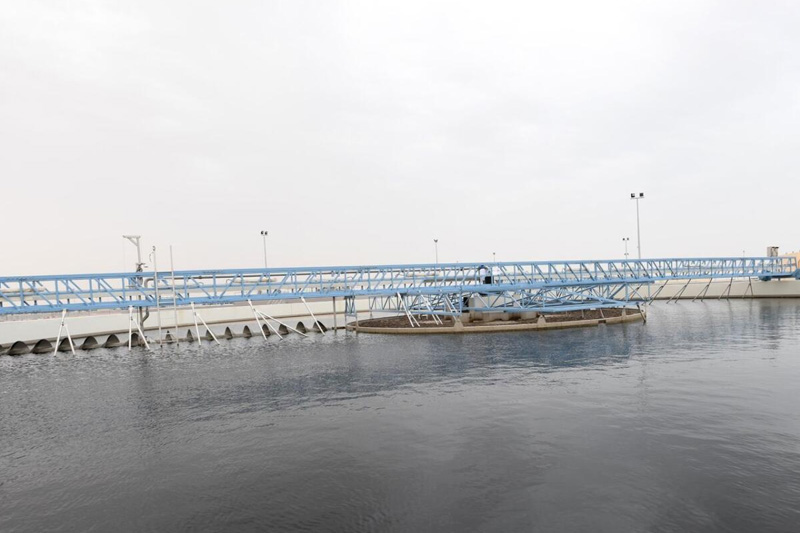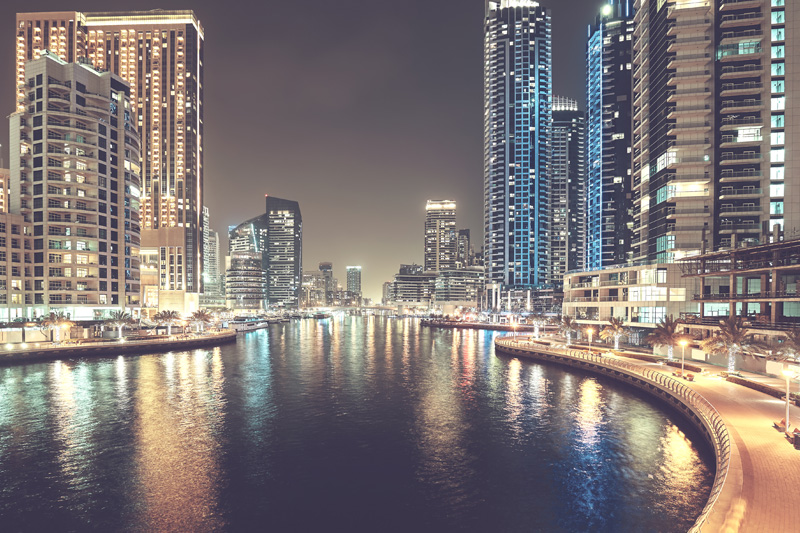Dubai’s Ambitious Water Reuse Plan: Towards a Sustainable and Green Future
Known for its visionary projects and transformative development, Dubai is once again making headlines with its bold announcement: by 2030, the city aims to reuse 100% of its water while reducing desalination and related power consumption by 30%. Spearheaded by the Dubai Municipality (DM), this groundbreaking initiative reflects the city’s commitment to sustainability, conservation, and the transition towards a green economy. With a track record of reusing 90% of its water, Dubai’s pursuit of a more sustainable future is gaining global attention and admiration.
Dawoud Al Hajri, Director General of DM, emphasized that Dubai’s leadership recognized the critical importance of water conservation early on in ensuring sustainable development. This visionary approach has led to the evolution of water recycling as a key component of Dubai’s efforts to transform into a hub for green economic activities. Reusing water not only safeguards precious groundwater resources but also reduces the energy-intensive process of desalination, resulting in decreased greenhouse gas emissions.
Dubai’s commitment to water reuse aligns seamlessly with its broader ambition to become one of the world’s most sustainable cities. By continuously launching new initiatives to enhance water reuse rates and lessen dependence on desalination and groundwater, Dubai is embracing a greener future. This multi-faceted approach involves significant reductions in power consumption, cost savings, and a decreased carbon footprint.

The impact of Dubai’s water reclamation program is evident in various applications. Recycled water is predominantly used to irrigate green spaces, covering approximately 2,400 kilometers of the city, including public gardens, landscaped areas, and property developments. With a monthly usage of around 22 million cubic meters for irrigation, the city is effectively repurposing water that would otherwise be wasted.
Furthermore, the benefits of reclaimed water extend to central cooling stations, firefighting operations, and even sewage treatment. In central cooling stations alone, over 6 million cubic meters of recycled water were employed in 2022, leading to substantial cost savings of approximately Dh7.1 million. The use of recycled water not only reduces operational costs but also contributes to lower power consumption and fewer carbon emissions, aligning with Dubai’s environmental goals.
Dubai Municipality’s water reclamation program is the result of over five decades of continuous effort. Starting in 1969 with the construction of the first wastewater treatment plant in Al Khawaneej, the program has evolved in response to the city’s rapid urban growth. Additional plants were established in Warsan (1981) and Jebel Ali (2006) to boost water recycling capacity. The refurbishments undertaken over the years have significantly expanded Dubai’s ability to treat wastewater.
The strides Dubai has made in water reclamation are impressive. Between 1980 and 2022, the city produced more than 4.5 billion cubic meters of reclaimed water, setting the stage for even more ambitious goals. By 2030, Dubai envisions doubling its production of recycled water to over 8 billion cubic meters. This determination to increase capacity showcases Dubai’s unwavering commitment to leading the charge in sustainable water management on a global scale.
Dubai’s announcement to achieve 100% water reuse by 2030 is a testament to its visionary leadership and unwavering commitment to sustainable development. With its proven track record of water conservation and reuse, the city is setting new benchmarks for environmental responsibility and green innovation. As Dubai works towards becoming a model of urban sustainability, its groundbreaking water reclamation program paves the way for a more sustainable and eco-conscious future, demonstrating that innovative solutions can drive positive change even in the face of challenges.
Summary of article by: Nasreen Abdullah, Khaleej Times
Read full article : HERE



